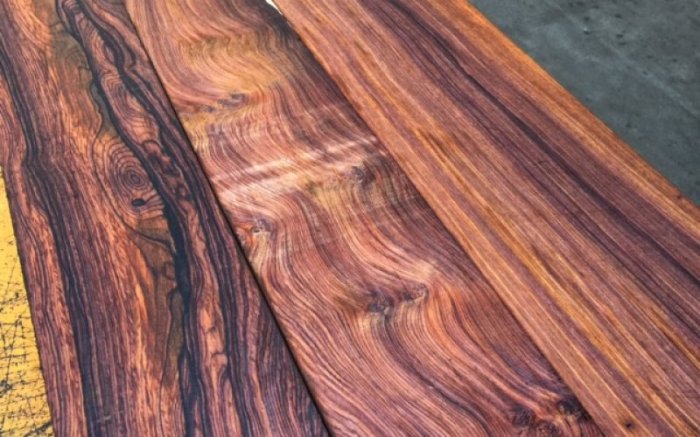A company is importing rare tropical hardwood – A company’s importation of rare tropical hardwood presents a complex narrative that intertwines environmental concerns, economic opportunities, and social implications. This multifaceted topic demands careful examination, as it raises questions about the sustainability of our practices and the well-being of both human and natural communities.
The global trade in rare tropical hardwood has experienced significant growth in recent decades, driven by increasing demand for exotic wood products. However, this trade has raised concerns about the environmental impact of deforestation, the loss of biodiversity, and the displacement of indigenous communities.
1. Importation of Rare Tropical Hardwood

The importation of rare tropical hardwood is a complex issue with both environmental and economic implications. This article explores the reasons for importing rare tropical hardwood, the challenges associated with its importation, and the environmental, economic, and social impacts of this trade.
Reasons for Importing Rare Tropical Hardwood
- Durability and aesthetic appeal
- Resistance to decay and pests
- Unique grain patterns and colors
- High demand for luxury furniture, flooring, and musical instruments
Challenges Associated with Importing Rare Tropical Hardwood
- Deforestation and habitat loss
- Illegal logging and unsustainable forestry practices
- High transportation costs
- Complex regulatory frameworks and international trade agreements
Examples of Countries that Import Rare Tropical Hardwood
- China
- United States
- European Union
- Japan
- Brazil
2. Environmental Impact of Importing Rare Tropical Hardwood

The importation of rare tropical hardwood has significant environmental implications, particularly deforestation and habitat loss. Deforestation leads to the loss of biodiversity, soil erosion, and climate change.
Impact of Deforestation on Biodiversity
- Loss of habitat for endangered species
- Fragmentation of forest ecosystems
- Disruption of food chains and ecological processes
Impact of Deforestation on Climate Change
- Release of carbon dioxide into the atmosphere
- Reduction in carbon sequestration
- Alteration of local and regional climate patterns
Sustainable Forestry Practices
- Selective logging
- Reduced-impact logging
- Reforestation and afforestation
- Certification schemes (e.g., FSC, PEFC)
3. Economic Impact of Importing Rare Tropical Hardwood
The importation of rare tropical hardwood has both positive and negative economic impacts. It can create jobs and generate revenue, but it can also lead to unsustainable forestry practices and environmental degradation.
Job Creation and Revenue Generation
- Logging and timber processing
- Furniture manufacturing
- Construction and renovation
- Tourism and recreation
Economic Development in Exporting and Importing Countries
- Increased exports and foreign exchange earnings
- Job creation and poverty reduction in exporting countries
- Investment in infrastructure and education in importing countries
4. Social Impact of Importing Rare Tropical Hardwood
The importation of rare tropical hardwood can have social impacts, particularly on indigenous communities and traditional forest users. These communities rely on forests for their livelihoods, cultural practices, and traditional medicine.
Impact on Indigenous Communities
- Loss of traditional lands and resources
- Displacement and resettlement
- Cultural erosion and loss of traditional knowledge
Impact on Traditional Forest Users
- Reduced access to forest products
- Loss of traditional hunting and gathering grounds
- Increased conflict with logging companies and government authorities
Social Programs to Address Negative Impacts
- Land rights and tenure security for indigenous communities
- Participatory forest management programs
- Alternative livelihood development programs
5. Regulations and Policies Governing the Importation of Rare Tropical Hardwood
The importation of rare tropical hardwood is governed by a complex framework of international regulations and policies, as well as national laws and policies.
International Regulations and Policies
- Convention on International Trade in Endangered Species (CITES)
- International Tropical Timber Organization (ITTO)
- World Trade Organization (WTO)
Role of CITES
- Regulates international trade in endangered species
- Sets quotas and permits for the import and export of rare tropical hardwood
- Monitors and enforces compliance with the Convention
National Laws and Policies, A company is importing rare tropical hardwood
- Forestry laws and regulations
- Environmental impact assessments
- Customs regulations and import tariffs
6. Alternatives to Importing Rare Tropical Hardwood

There are several alternatives to importing rare tropical hardwood, each with its own advantages and disadvantages.
Alternative Materials
- Domestic hardwoods (e.g., oak, maple, walnut)
- Modified wood products (e.g., heat-treated wood, bamboo)
- Recycled wood
- Composite materials (e.g., wood-plastic composites)
Advantages of Alternative Materials
- Reduced deforestation and environmental impact
- Lower cost and availability
- Improved durability and performance
Disadvantages of Alternative Materials
- May not have the same aesthetic appeal or durability as rare tropical hardwood
- May require additional processing or treatment
- May not be suitable for all applications
FAQ: A Company Is Importing Rare Tropical Hardwood
What are the primary reasons for importing rare tropical hardwood?
Rare tropical hardwood is imported primarily for its unique aesthetic qualities, durability, and resistance to decay. It is highly sought after for use in high-end furniture, flooring, and other luxury products.
What are the environmental concerns associated with the importation of rare tropical hardwood?
The importation of rare tropical hardwood has been linked to deforestation, habitat loss, and the displacement of indigenous communities. Unsustainable logging practices can also contribute to climate change by releasing carbon dioxide into the atmosphere.
What are some examples of sustainable forestry practices that can mitigate the environmental impact of importing rare tropical hardwood?
Sustainable forestry practices include selective logging, reforestation, and the use of certified wood products. These practices aim to minimize the environmental impact of logging and ensure the long-term sustainability of tropical forests.